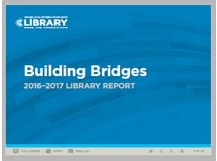For those of you who haven’t heard of Sci-Hub, this website was founded by Alexandra Elbakyan and her intent for developing this site was to remove barriers that would hinder progress in science. The reality is that Sci-Hub does much more than allow visitors to illegally access published journal articles and download scientific papers. What researchers should understand is how Sci-Hub uses an individual’s personal login credentials. While a small number of credentials are donated to Sci-Hub, the majority are taken, often without the knowledge of the individual.
In a recent post from the Scholarly Kitchen (09/18/2018), guest author, Andrew Pitts provides collected evidence and real examples of how Sci-Hub is using personal credentials to get into academic institutions — “While illegal access to published content is the most obvious target, this is just the tip of an iceberg concealing underlying efforts to steal multiple streams of personal and research data from the world’s academic institutions.”
In June 2016, I published a post entitled, “Sci-Hub: Serving Up Scholarly “Pirated” Journal Articles”, which provides additional information. For those still curious about Sci-Hub, this 2016 bibliography from Stephen Reid McLaughlin might also be of interest.
For now, we hope that our researchers will resist the urge to use Sci-Hub or any other third-party aggregator of this nature, and instead choose our Document Delivery Service for articles not found in the MSK eJournal collection.
Donna Gibson
Director of Library Services
 I am delighted to present to our readers and library users our
I am delighted to present to our readers and library users our